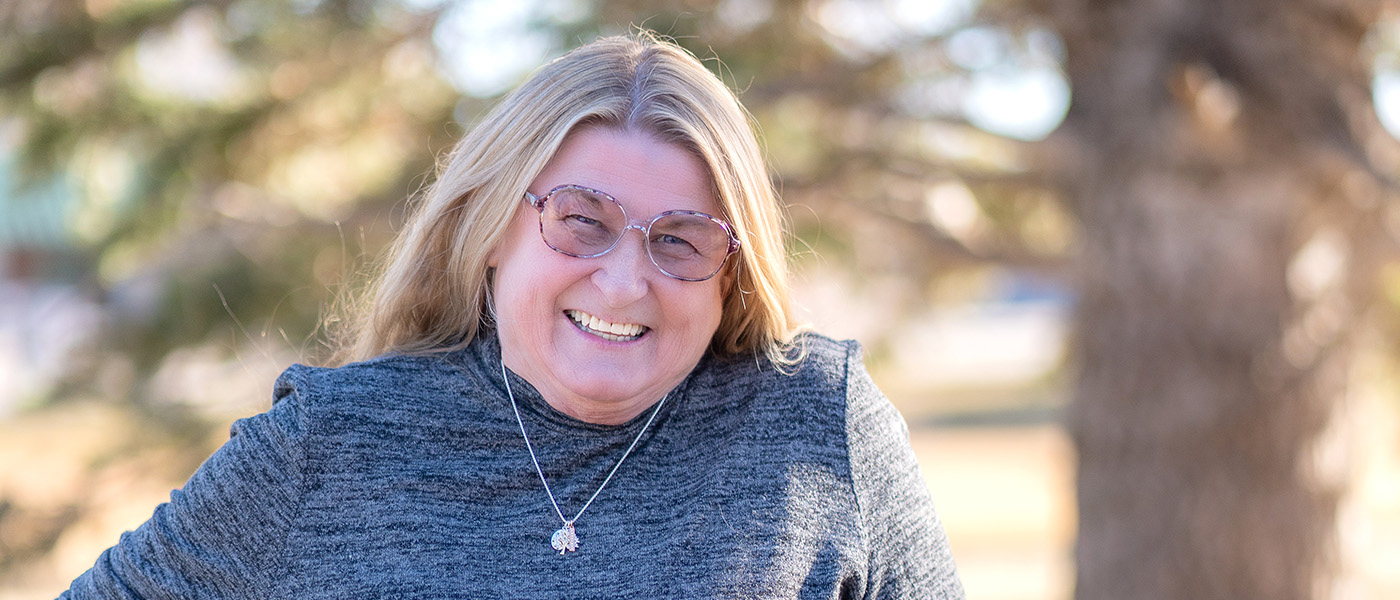Lori Allen has struggled with breathing and other health issues all her life. Eventually, she was diagnosed with a heart condition that could only be corrected with surgery. As part of her follow-up care, Lori’s caregivers at Monument Health continued monitoring her cholesterol levels post surgery. “My cholesterol has always kind of been a big thing,” Lori explained.
Knowing that Lori’s cholesterol levels met certain special criteria, Bhaskar Purushottam, M.D., FACC, FSCAI, FSVMB, reached out to Monument Health’s Clinical Research department to see if Lori would be a good fit for an upcoming clinical trial.
Being a part of clinical research
Kelli McIntosh is the Director of Monument Health’s Clinical Research department. She said that this lesser-known but crucial facet of the Monument Health system is vital in keeping caregivers on the cutting edge of treatment options. Sometimes, though, inviting patients to participate in a research study can involve overcoming some preconceived ideas. “The first thought that the general public has a lot of time is, ‘Well, I don’t want to be a guinea pig,’” she said.
Roger DeRaad, CNP, Clinical Research Investigator, agrees with Kelli. He said that most patients are initially skeptical of participating in clinical research, but that many of them decide to join a study because of the benefits. “A lot of our patients mention that they’re doing this for their family, for people in the future or to have a chance to fight back. It can be frustrating when you get a diagnosis, and sometimes patients just want to be able to do something,” he said.
Kelli, Roger and the whole team of Clinical Research caregivers advise taking advantage of an opportunity to participate in a clinical trial if you’re ever presented with one. As Roger described, there are many motivations to participate, but one outcome that might be surprising. “Participants in clinical research typically fare better than patients who are not,” Roger said. “It’s not necessarily because of the treatment, although it certainly can be beneficial. Often it’s because these patients are under a heightened level of observation.”
A 25-year legacy
The Monument Health Clinical Research department has been a part of medical breakthroughs for over two decades. And because many of the caregivers at Monument Health play such an active role in these trials, when a new drug or treatment is approved, these experienced nurses and doctors are able to hit the ground running when offering these new breakthroughs to their patients.
A life-saving discovery
Lori’s introduction to the Clinical Research team started in a typical way. “I got a call and I thought, ‘What is this? It seems kind of scary,’” she said. But Lori soon discovered that participating in clinical research is special, and that it’s about inviting a larger group of caregivers around you and your diagnosis. “Everybody that I’ve met through the research and all my doctors over at the hospital have just been super fantastic. I’m so grateful to everybody,” she said.
Lori’s participation in this clinical research study involved getting a Computed Tomography Angiogram, or CTA — a diagnostic test that she would not have received in her regular course of treatment. Because of that scan, Lori and her caregivers made a lifesaving discovery.
“If I hadn’t had that CTA, I don’t know if I would still be here.” Lori’s CTA revealed an elevated chance of a heart attack that would have likely gone unnoticed if Lori wasn’t observed at that heightened level. “I’m very thankful for that. My doctor encouraged me to get into the research, and a part of the research was doing the CTA.”
Taking ownership of your own well-being can take many forms — exercising, eating right and staying informed. And sometimes it means, like in Lori’s experience, being intentional about surrounding yourself with the best caregivers you can find. Receiving a diagnosis can be scary, frustrating and even leave people with a sense of helplessness. Lori is living proof that you can fight back against those emotions. Participating in a research study — if the opportunity should arise — is one of those ways.
“Do it. It definitely changed my life,” Lori said.
Another pair of eyes
A reason caregivers were able to intervene early in Lori’s heart condition was thanks to Dr. Purushottam, who connected Lori with Clinical Research. If she hadn’t participated in that trial, she likely wouldn’t have received the CTA scan that led to her caregivers performing open heart surgery. “Often patients are worried when they hear about a research trial, but in research, you have another pair of eyes,” said Dr. Purushottam.
Participating in clinical research proved to be vital in Lori Allen’s health — it may have even saved her life. “She could have had a major heart attack, which could have potentially killed her or led to heart failure,” said Charan Mungara, M.D., one of Lori’s surgeons. He was grateful to have been able to make a difference in Lori’s life. “She was an excellent patient,” Dr. Mungara added. “She’s a sweet lady and very appreciative. I’m glad she’s doing well.”

